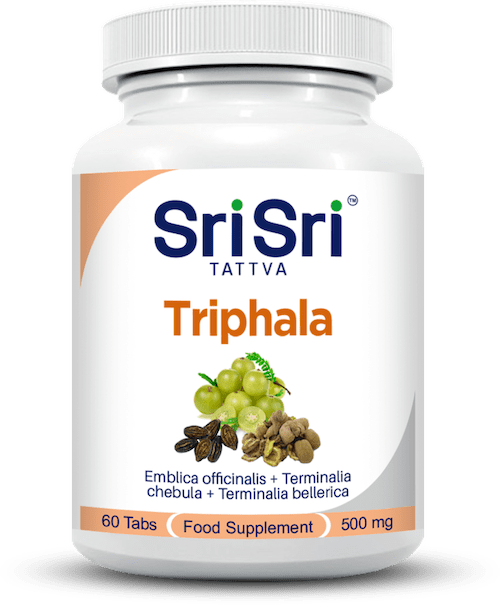What is the Ayurvedic Diet?
Forget fad diets and calorie counting. Step into the world of ancient wisdom, where food becomes more than just sustenance – it becomes a key to unlocking balance and harmony within your body and mind. That's the power of the Ayurvedic diet, a cornerstone of Ayurveda, a centuries-old Indian system of medicine focused on achieving optimal well-being.
No one-size-fits-all approach here. The Ayurvedic diet recognizes that we're all unique, with different physical and emotional constitutions, known as doshas. By understanding your dominant dosha – Vata (airy and light), Pitta (fiery and intense), or Kapha (earthy and stable) – you can craft a personalized food plan that resonates with your deepest needs. Think of it as nourishing your individuality from the inside out.
This ancient wisdom promises improved digestion, reduced stress, increased energy, and even potential weight management. It's about building a foundation of holistic well-being, where food, lifestyle, and mindfulness intertwine to create a symphony of health.
How does the Ayurvedic Diet Work?
Forget restrictive rules and bland meals. The Ayurvedic diet is a delicious affair, brimming with vibrant colors, aromatic spices, and fresh, whole foods. The magic of the Ayurvedic diet lies in its ability to align your food choices with your individual dosha.
- Vata (air and space) tends to be light, airy, and quick-moving. A Vata balancing diet would focus on warm, grounding foods like cooked vegetables, stews, whole grains, nuts, and seeds. These choices help anchor Vata's airy nature and promote feelings of stability and calmness.
- Pitta (fire and water) is fiery, intense, and driven. To balance Pitta, the diet emphasizes cooling, soothing foods like leafy greens, cucumbers, yogurt, sweet fruits, and spices like coriander and fennel. These foods help temper Pitta's fiery energy and support emotional balance.
- Kapha (earth and water) is heavy, stable, and slow-moving. A Kapha-balancing diet incorporates lighter, drier foods like spices, lentils, beans, apples, and pears. These choices help stimulate Kapha's sluggish tendencies and promote mental clarity and energy.

Remember, these are just general guidelines. The key is to consult with an Ayurvedic practitioner to determine your unique dosha and receive a personalized diet plan tailored to your specific needs.
What to Eat Dosha Wise?
By understanding your dominant dosha (Vata, Pitta, or Kapha), you can select foods that balance its qualities and promote harmony within your body and mind.
1. Vata
Warm soups, stews, cooked vegetables, whole grains, nuts, seeds, sweet fruits, and spices like ginger, cinnamon, and cardamom.
2. Pitta
Leafy greens, cucumbers, yogurt, sweet fruits, cooling spices like coriander, fennel, and mint. Avoid spicy, sour, and oily foods.
3. Kapha
Spiced lentils, beans, apples, pears, lighter grains like quinoa and millet. Avoid sweet, heavy, and oily foods.
Is the Ayurvedic Diet a Healthy Choice for You?
Wondering if the Ayurvedic diet could be a good fit for you? This ancient approach to food goes beyond mere calorie counting - it's about aligning your plate with your unique inner self. Whether you're seeking to calm a fiery spirit, balance an airy disposition, or ground a heavy constitution, the Ayurvedic diet offers a personalized path to well-being.
From helping improve digestion and gut health, keeping stress and anxiety at bay, being a barrier to chronic diseases and also a catalyst in cultivating a deeper connection with the body and mind, the benefits are far and wide when it comes to an Ayurveda diet plan.
However, it's important to consult with a doctor or qualified practitioner before making significant dietary changes, especially if you have any underlying health conditions.

Ayurvedic Diet Combination Principles
An Ayurvedic diet plan emphasizes specific food combinations for optimal digestion and absorption. Some key principles include:
1. Avoiding Incompatible Foods
Combining certain foods can create digestive disturbances. For example, milk and fruit, honey and yogurt, or meat and fish are generally discouraged in Ayurvedic meals.
2. Eating According to your Dosha
Each dosha has specific food combinations that best support its balance. Vata benefits from warm, cooked meals with diverse textures, while Pitta thrives on cooling and soothing combinations, and Kapha prefers lighter and drier pairings.
3. Mindful Eating
Ayurveda encourages mindful eating practices like eating slowly, savoring each bite, and avoiding distractions during meals. This promotes better digestion and a deeper connection to your food.
Health Benefits of an Ayurvedic Diet
Are you ready to nourish your body and soul in a way that resonates with your unique self? Let's delve into the transformative power of an Ayurvedic diet!
May Help Balance Your Microbiome
The gut is considered the foundation of health in Ayurveda. The emphasis on fermented foods, fiber-rich vegetables, and gut-friendly spices can promote a healthy gut microbiome, impacting digestion, immunity, and overall well-being.
Ayurvedic foods like steamed broccoli florets, sweet potato chunks, earthy mushrooms, and garlicky sauteed spinach are perfect examples for a healthy gut microbiome.
May Help Reduce Stress And Increase Mindfulness
Ayurvedic practices encourage mindful eating and conscious food choices, promoting present-moment awareness and reducing stress. Additionally, specific spices and herbs have calming properties that can further support mental well-being.
Ayurvedic foods like spicy chickpea with spinach curry, chamomile tea with cardamom and lavender-infused milk with dates are great at helping keep stress and anxiety at bay.
May Reduce the Risk of Chronic Disease
The focus on whole, unprocessed foods, healthy fats, and spices contributes to optimal metabolic function. This, combined with lifestyle practices like regular exercise and stress management, can potentially lower the risk of chronic diseases like heart disease and diabetes.
Avocado, turmeric and walnuts are some of the ayurvedic foods that play an active role in supporting healthy cholesterol levels.
May Play a Role in Weight Loss
When you eat foods aligned with your dosha, you're more likely to feel satiated and experience natural weight management. Ayurvedic principles also discourage processed foods and sugary drinks, further supporting healthy weight management.
Indulge in lentil soups, ginger and cumin on roasted vegetables, and slices of watermelon that all help reduce weight in the realm of Ayurvedic foods.
May Provide Digestive Relief for People With IBS
The Ayurvedic diet emphasizes easily digestible foods and gut-calming spices. These choices can offer relief for individuals with irritable bowel syndrome by reducing inflammation and promoting digestive regularity.
Ginger, fennel, and cumin are great additives with porridge, quinoa and lentil soups. They are key spices in an Ayurvedic diet plan that help people with IBS.
May Reduce Food Cravings
By nourishing your body with foods that align with your dosha, you can reduce cravings for unhealthy, processed foods that often contribute to unhealthy eating patterns. This creates a cycle of balanced eating and improved well-being.
Vata dosha can opt for grounding foods like nuts, and sweet potatoes, while Pitta dosha should try leafy greens and cucumber. Meanwhile, lentils, apples and spices work best for the Kapha dosha.
History of the Ayurvedic Diet
The Ayurvedic diet has a rich and ancient history, dating back over 5,000 years to the Vedic scriptures of India. It evolved alongside Ayurvedic medicine, a traditional system of healing that emphasizes the interconnectedness of mind, body, and spirit. Over centuries, the diet has been refined and adapted based on regional influences and individual needs, making it a dynamic and adaptable approach to health.
Conclusion
The Ayurvedic diet is not just a set of food rules; it's a journey towards self-discovery and holistic well-being. By understanding your unique dosha and aligning your diet with its needs, you can unlock a world of balance, energy, and vitality.
Whether you seek balance, stress reduction, or specific health improvements, the Ayurvedic diet presents a unique and time-tested avenue to explore on your journey to well-being. Explore the Digestion Kit from Sri Sri Tattva, a valuable resource to jumpstart your Ayurvedic journey. It offers comprehensive dosha-specific guidance, delicious recipes, and lifestyle tips to help you experience the full potential of this ancient wisdom.





